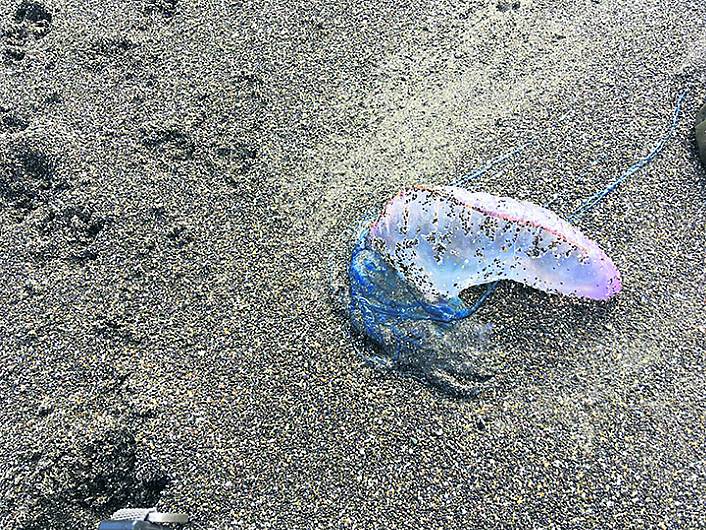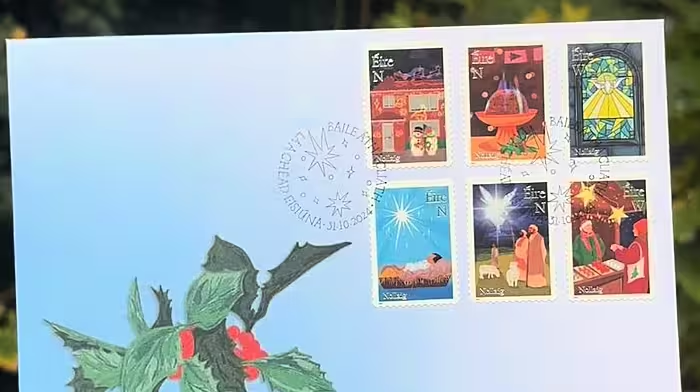Wild swimmers and beachcombers in West Cork have been warned to watch out for the Portuguese Man O' War jellyfish that are currently being washed up on our shores.
WILD swimmers and beachcombers in West Cork have been warned to watch out for the Portuguese Man O’ War jellyfish that are currently being washed up on our shores.
Reported sightings of the jellyfish – which can give an extremely painful and occasionally deadly sting – are coming in from all along the south-west coast.
UCC’s zoology lecturer, Dr Tom Doyle confirmed to The Southern Star that there were more than 20 sightings on Cape Clear, followed by a couple of individual sightings at Sherkin, as well as two in Castlefreke, five in Barleycove, and ten in Allihies.
He said: ‘Swimmers and walkers really do need to be careful because the man o’war has tens of thousands of stinging capsules on its tentacles and even if it appears dead it can be active for several days after it is washed ashore.’
Dr Doyle confirmed: ‘For four years in a row we have had sightings of them in large or significant numbers, usually during the month of September.
‘Before 2016, there may have been one or two washed up, but you have to go back to 1968 when there were a 1,000 reported on Cape Clear.’
The zoology lecturer said the Portuguese Man O’ War are very distinctive. They can measure anything between 7cm to 15cm in length and are purple and blue in colour, and have a crimped edge.
Dr Doyle said he could not definitively say what is causing the increase in sightings in the last four years, but he did suggest that the increased incidents of storms and high winds is causing them to be blown further north than their normal range and onto our shores.
Anyone who sees one of these jellyfish would be advised not to touch it and to keep pets away from it. People are being asked to be especially vigilant in the coming days because Storm Lorenzo is likely to cause even more to be washed ashore.
Anyone who sees one is being asked to photograph it, and to record how many they saw, and the exact location, and to share that information on the Big Jellyfish Hunt page on Facebook.







